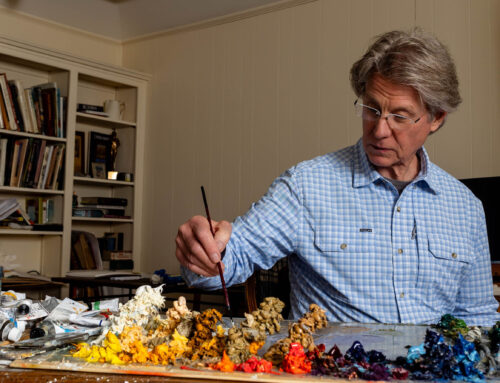Flip through any Dallas Symphony Orchestra playbill, and you’ll find Lake Highlands resident Laurie Shulman’s byline under the program notes. Her deep love and vast knowledge of both history and music come together in her discussion of each concert piece, in which Shulman gives the audience “a kind of a window, inviting them into the listening experience.”
What exactly does writing program notes require?
The basic process entails obtaining a score and a recording (if available) and finding out the background of the composer, but that’s a completely different process for a composer like Beethoven or Mozart or Brahms than calling up a living composer. Even non-musicians know who Beethoven is, so if I were writing about Beethoven, I might want to dig a little deeper — where was he in his career? Is there anything that makes this piece special and different? If I’m writing about [living composer] George Tsontakis, the audience needs more information.
What is it like to interview a living composer?
It makes me feel like I’m on the cutting edge. Composers are always thrilled that someone is interested in their work. And it’s part of living history. How do we know who’s going to be the Beethoven of tomorrow? Composers ultimately want their music to be performed, and they want people to appreciate it and enjoy it and gain something from the experience of listening, and that’s part of what my writing does. I also feel like it really matters because people can be inherently wary of new music. I like to think of what I do as being the bridge for the gap that can exist between performers and audience.
You grew up around chamber music. What was that like?
It was something I took for granted. It didn’t occur to me probably until high school that not everybody lived with so much music. We had two Steinway grand pianos around the home; that way, I could practice at one end of the house while my father was composing at the other end. See, my father was in the NBC Symphony under Toscanini, and he knew everybody in music in New York — everybody.
How did you decide you wanted to be a historical musicologist?
I knew I wasn’t cut out to be a performer. I have talent; I don’t have genius. I don’t have that kind of drive. My undergrad degree was in European history, and musicology was a way I could bring together history and music. My education prepared me to teach at the university level, but when I moved down here in 1985, I had a freshly minted Ph.D., and the economy was falling apart. I basically carved a niche where none existed. Writing is the way I’m pursuing my desire to educate. I’m not doing it in the classroom, but I’m reaching more people. Any given subscription weekend at the Dallas Symphony, 7,000 people could be reading my writing.
What most interested you while researching your book, “The Meyerson Symphony Center: Building a Dream”?
Discovering that my topic wasn’t really a building. The book is more about people and the soul of a city. Every obstacle that could possibly have been thrown in the path of that building being built, was. I found so much passion in my interviewees that they infused me with the same kind of passion. Plus, it’s a magnificent concert hall. It still gives me chills when I hear music in there. When I moved to Texas in 1985, Dallas was clearly ready for a lot of cultural growth, and the Meyerson, I feel, has been a marvelous catalyst for expanding culture throughout the metroplex. It’s been very exciting to have seen the community flourish over the last 20 years, and I’m very proud to have been a small part of that process.
Is there a particular concerto or symphony about which you love to write?
The new one that I don’t know or haven’t written about before. Some people thrive on routine; I thrive on the constant challenge of something new and the thrill of discovery. That stated, it is always a great joy to return to a great chestnut of the repertoire and find something new that I had never discovered before. That’s what makes great music — it still has something to say.
To learn about Laurie Shulman or purchase an inscribed copy of her book, “The Meyerson Symphony Center: Building a Dream,” visit classicalprogramnotes.com.





